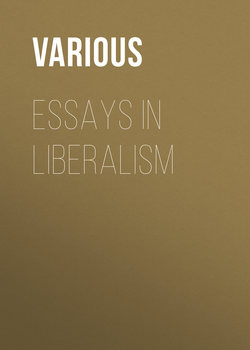Читать книгу Essays in Liberalism - Various - Страница 11
THE BALANCE OF POWER
By Professor A.F. Pollard
The Theory of Balance
ОглавлениеThe discussion of their respective merits naturally led to an inquiry into what the alternative policies really meant. But inasmuch as the Foreign Office committee found itself able to agree in recommending some form of League of Nations, the idea of the Balance of Power was not subjected to so close a scrutiny or so searching an analysis as would certainly have been the case had the committee realised the possibility that reaction against an imperfect League of Nations might bring once more to the front the idea of the Balance of Power. The fact was, however, elicited that the Foreign Office conception of the Balance of Power is a conception erroneously supposed to have been expressed by Castlereagh at the time of the Congress of Vienna, and adopted as the leading principle of nineteenth century British foreign policy.
Castlereagh was not, of course, the author of the phrase or of the policy. The phrase can be found before the end of the seventeenth century; and in the eighteenth the policy was always pleaded by potentates and Powers when on the defensive, and ignored by them when in pursuit of honour or vital interests. But Castlereagh defined it afresh after the colossal disturbance of the balance which Napoleon effected; and he explained it as “a just repartition of force amongst the States of Europe.” They were, so to speak, to be rationed by common agreement. There were to be five or six Great Powers, whose independence was to be above suspicion and whose strength was to be restrained by the jealous watchfulness of one another. If any one State, like France under Napoleon, grew too powerful, all the rest were to combine to restrain it.
Now, there is a good deal in common between Castlereagh’s idea and that of the League of Nations. Of course, there are obvious differences. Castlereagh’s Powers were monarchies rather than peoples; they were limited to Europe; little regard was paid to smaller States, whose independence sometimes rested on no better foundation than the inability of the Great Powers to agree about their absorption; and force rather than law or public opinion was the basis of the scheme. But none of these differences, important though they were, between Castlereagh’s Balance of Power and the League of Nations is so fundamental as the difference between two things which are commonly regarded as identical, viz., Castlereagh’s idea of the Balance of Power and the meaning which has since become attached to the phrase. There are at least two senses in which it has been used, and the two are wholly incompatible with one another. The League of Nations in reality resembles Castlereagh’s Balance of Power more closely than does the conventional notion of that balance; and a verbal identity has concealed a real diversity to the confusion of all political thought on the subject.
Castlereagh’s Balance of Power is what I believe mathematicians call a multiple balance. It was not like a pair of scales, in which you have only two weights or forces balanced one against the other. It was rather like a chandelier, in which you have five or six different weights co-operating to produce a general stability or equilibrium. In Castlereagh’s scheme it would not much matter if one of the weights were a little heavier than the others, because there would be four or five of these others to counterbalance it; and his assumption was that these other Powers would naturally combine for the purpose of redressing the balance and preserving the peace. But a simple balance between two opposing forces is a very different thing. If there are only two, you have no combination on which you can rely to counteract the increasing power of either, and the slightest disturbance suffices to upset the balance. Castlereagh’s whole scheme therefore presupposed the continued and permanent existence of some five or six great Powers always preserving their independence in foreign policy and war, and automatically acting as a check upon the might and ambition of any single State.
